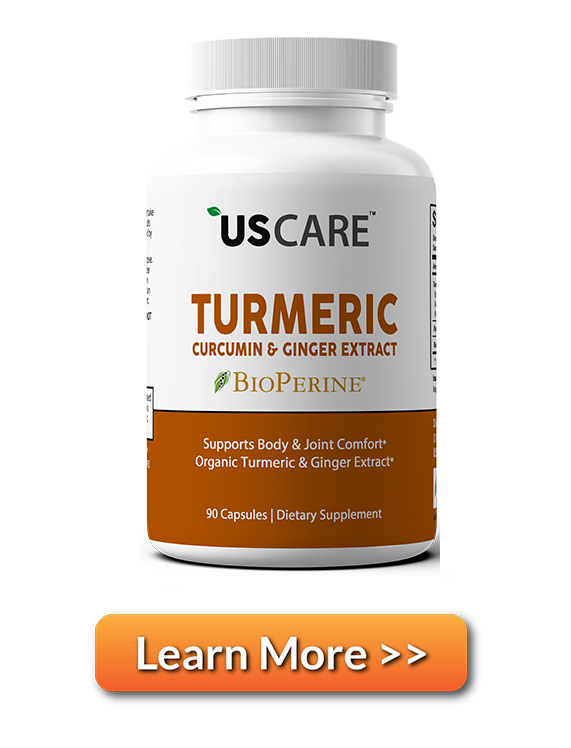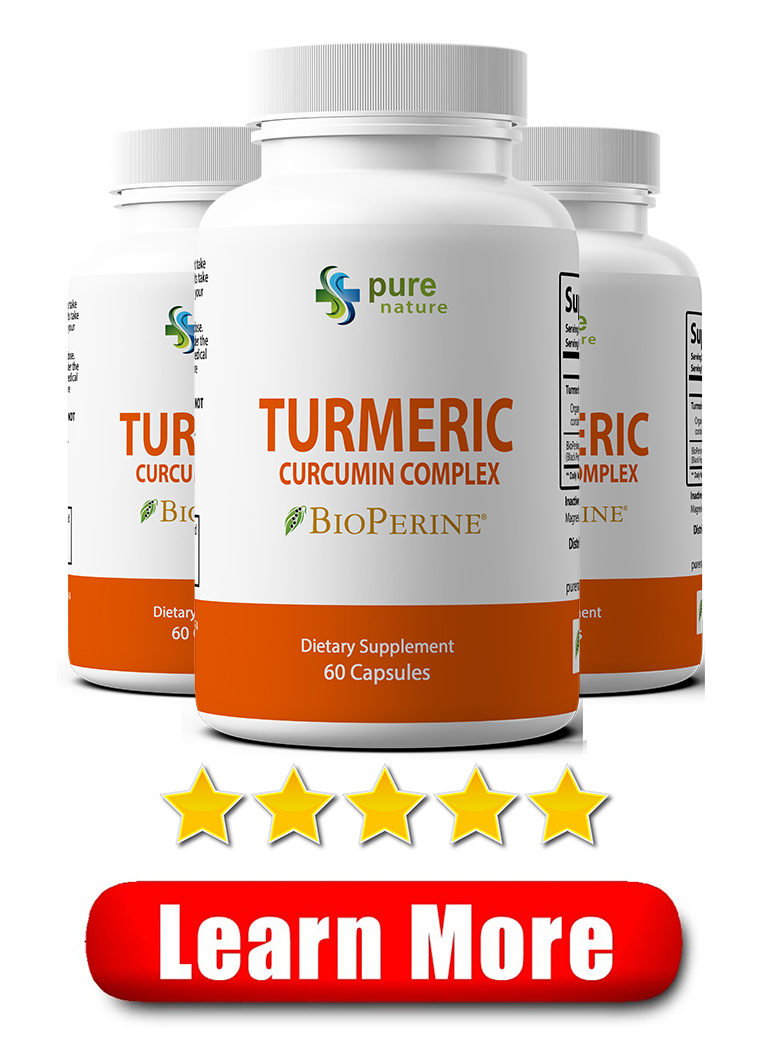What is the ideal turmeric curcumin dosage?
According to the latest research, an effective turmeric curcumin supplement needs between 1,000 to 1,500mg of turmeric curcumin plus 10mg of Bioperine or other forms of black pepper extract. Piperine (BioPerine®) was shown to increase the bioavailability of Curcumin by 2,000% in humans at 45 minutes after Curcumin and Piperine were taken orally.
What is BioPerine?
BioPerine® is a natural thermonutrient with bioavailability enhancing properties. It is an extract from the Black Pepper Fruit that is standardized to 95% Piperine. BioPerine® is a trademarked ingredient and is the only product of Piperine to obtain a patented status for its ability to increase the bioavailability of nutritional compounds and is also the only source of Piperine to have undergone clinical studies in the U.S. to substantiate its safety and efficacy for nutritional use.
Can you get turmeric naturally from foods?
Turmeric, as a spice, is a common ingredient in many dishes specially Indian meals. Although, turmeric spice is beneficial to your health, the right Turmeric Curcumin extract formula can achieve therapeutic benefits mentioned below.
What are the benefits of turmeric curcumin supplement?
Turmeric Curcumin supplement is a natural and nutritional support to: Relieve Joint and Back Pain, Reduce Inflammation and Skin Dryness, Help prevent type 2 diabetes, Boost Brain Function & Memory, Improve Digestion and Blood Circulation, Promote Cardiovascular Health, Enhance Immune and Nervous System, Anti-depressants, Digestive health, Promotes balanced mood, Cholesterol regulators and much more.
What are the risks of taking turmeric?
Turmeric is considered to be generally safe. However, pregnant women should first consult with a doctor before using turmeric or any other dietary supplements. It is recommended to always consult with your doctor if you are unsure about any supplements in general. Children and women who are breastfeeding should only use turmeric supplements if a doctor recommends it.
How do I choose the right turmeric?
According to several studies, the ideal dosage for an effective turmeric supplement is 1300mg of turmeric curcumin standardized to 95% plus 10mg of BioPerine. We have listed the top 5 rated brands that have been tested for purity, effectiveness and label accuracy.
Clinical research: an effective Turmeric supplement should contain between 1,000 – 1,300mg of Turmeric Curcumin standardized to 95% and 10mg of BioPerine.
BioPerine® is sourced out of black pepper, having BioPerine “in the right place at the right time” in the digestive tract with supplemented nutrient results in enhanced absorption. A purified extract of piperine is necessary to get the increased absorption.
Does your turmeric curcumin contain cheap synthetic fillers?
Some brands add artificial fillers to cut cost to offer cheap products. Some of these cheap fillers we found were titanium dioxide and artificial coloring. You should never purchase cheap products when it comes to supplements. You should avoid turmeric supplements that lack BioPerine or black pepper extracts. We noticed some ineffective brands recently with additives such as essential oils, ginger and Boswellia, there has been no clinical studies to prove these additives are effective in turmeric curcumin supplements. For your convenience, below we have listed the Top Turmeric Curcumin brands.
Has your brand been third-party tested?
You should never buy supplements that don’t have Certificate of Analysis. The studies should be conducted in labs that are not affiliated with the manufacturer. These labs verify the product for safety and potency. Only buy supplements that are backed by third-party labs and manufactured in an FDA approved facility.
What are the capsules made of?
Another important factor to consider in supplements is to make sure the capsules are made with vegetable cellulose. This ensures you the supplement is all natural. Vegetarian capsules dissolve appropriately and show better results.
The Result: We tested over 100+ brands of Turmeric pills in the market in house. We did extensive research on top brands, read consumer’s reviews and surveyed over 11,571 customers.
Here Is The #1 Rated Brand
#1 USCare Turmeric
- Essential Ingredients 100%
- Label Accuracy 100%
- Potential Results 99%
- Overall Score 100%
Essential Ingredients: we check every products ingredients list for safety and dosage amount in comparison to published research studies.
Potential Results: we consider the dosage and essential ingredients in each label and then compare them to published studies to measure their potential effectiveness.
Return Policy: we check the products’ return procedure and policy and make sure top brands offer a hassle-free refund.
Overall Score: we take essential ingredients, potential results and return policy scores and rank the top 5 brands based on their average score.
*This is a subjective assessment based on the strength of the available information and our independent research and customer feedback.
**Results may vary based on individual.
***Disclosure of Material Connection: we only recommend products and services which we believe will add value to the users. However, you should assume the owner of this website and/or blog has an affiliate relationship and/or another material connection, to any suppliers of goods and services that may be discussed here and may be compensated for showing ads or recommending products or services or linking to the supplier’s website.
There are numerous scientific papers on the benefits of turmeric curcumin. We have compiled some of the literature for your convenience.
[7] Farooqui, Akhlaq A. 2016. Therapeutic potentials of curcumin for Alzheimer disease.
[8] Ferrari, C. K. B. (2004) Functional foods, herbs and nutraceuticals: towards biochemical mechanisms of healthy aging. Biogerontology 5, 275–289.
[10] Goel, A., Kunnumakkara, A. B., and Aggarwal, B. B. (2008) Curcumin as ‘‘curecumin’’: fromkitchen to clinic. Biochem Pharmacol. 75, 787–809.
[12] Lobo V, Patil A, Phatak A, Chandra N. (2010). Free radicals, antioxidants and functional foods: Impact on human health. Pharmacognosy Reviews 4(8):118-126.doi:10.4103/0973-7847.70902.



